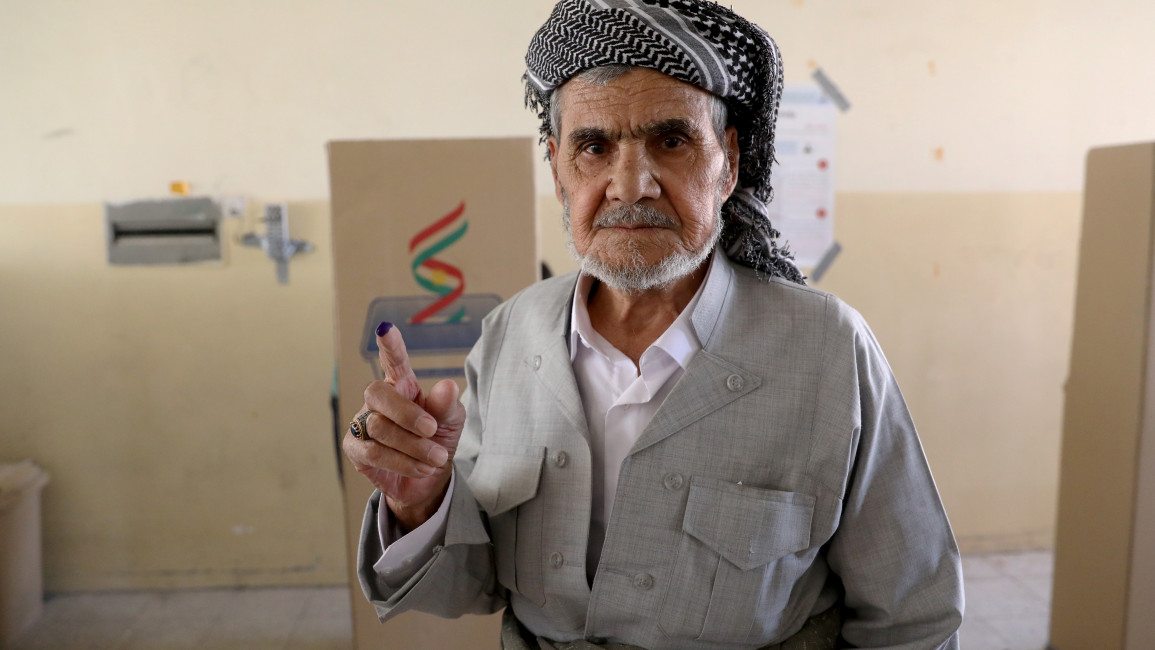The Kurdish political parties are expected to discuss and decide whether to postpone the upcoming parliamentary elections in the Iraqi Kurdistan Region
The United Nations Assistance Mission for Iraq (UNAMI) Special Representative Jeanine Hennis-Plasschaert, President of the Kurdistan Region Nechirvan Barzani, and the main political parties in the Iraqi Kurdistan Region (IKR) are convening for the third time on Wednesday to discuss the region’s upcoming parliamentary elections scheduled for October 1st, Kurdish officials said.
The meeting will also be attended by Plasschaert, Fawzi Hariri, the Kurdistan Region Presidency chief of staff, told Rudaw, a Kurdish news network close to Barzani.
Today’s meeting is the third round of talks about the region’s elections that are expected to be postponed until next year. Plasschaert previously headed a meeting with top officials from the Kurdish political parties in Erbil on 26 May in a bid to reach an agreement on the upcoming elections. She also participated in another meeting with political parties on June 9.
The meeting comes after demonstrations across the Kurdistan region were held on Saturday. Demonstrators protested against attempts to postpone the region’s parliamentary elections. Kurdish security forces have responded by using tear gas and arrested hundreds of demonstrators, journalists and several lawmakers as well as senior officials from the New Generation Movement- an opposition party that had called the demonstrations.
“The agenda of the meeting is the elections of the Kurdistan parliament and ways to reach a suitable solution for this issue,” Yassin Hama Ali, head of the elections commission at the Kurdish Movement of Change (Gorran) told The New Arab by phone. He also clarified that he is not sure whether a decision for postponing the election would be made during the meeting.
Officials previously told TNA that “All the Kurdish political parties that participated in a meeting on Thursday, June 9, agreed on the point that the Kurdistan region’s upcoming parliamentary elections could not be held in October.”
Key issues are impeding the chances of actually holding the elections on the designated date, including differences among the Kurdish political parties over the region’s current outdated election’s commission composition as well as amending the region’s decades-old election law.
The Patriotic Union of Kurdistan (PUK) and Gorran, partners with the Kurdistan Democratic Party (KDP) in the Kurdistan Regional Government (KRG), joined by three main opposition parties – the New Generation Movement, the Kurdistan Justice Party (Komal), and the Kurdistan Islamic Union (KIU) – are asking the Kurdistan Parliament to amend the election law to divide the region into at least four electoral districts. The five parties are also asking for the establishment of a new election commission.
But Massoud Barzani’s KDP, which has a thin majority of 45 seats in the parliament, insists that the upcoming elections be held with the current election law and supervised by the region’s election commission whose mandate has already expired.
Rival politicians claim that the KDP is opposing the move since its vote share is expected to diminish largely if the party agrees to amend the law.
A source within Gorran, told TNA on condition of anonymity because he was not authorized to speak to the press, said that during Wednesday’s meeting “Plasschaert will listen to the final stances by all the Kurdish political sides on the election issue, whether they are ready to be held on its scheduled time or wound be postponed until at least one year.”
“We are not the ones hosting the meeting, hence we cannot comment on it,” Samir Ghattas, Director of UNAMI Public Information/Spokesperson told TNA via email.
Several Kurdish local citizens from Sulaimaniyah city told TNA that they are not expecting the elections to be held in October and even if were held they would boycott it due to “large-scale voter fraud by the ruling parties”.
The Kurdistan parliament includes 111 seats; women have a minimum quota of 30 percent, while 11 seats are allocated for parties that represent minority groups. The KDP, which has dominated the support of 11 lawmakers from the minorities, is considered a kingmaker in the Kurdish parliament.
The last parliamentary election, held in September 2018, saw a turnout of 57% and was marred by alleged large-scale voter fraud by the KDP- which dominates Erbil and Duhok provinces- and the PUK- that controls Sulaimaniyah and Halabja provinces.
